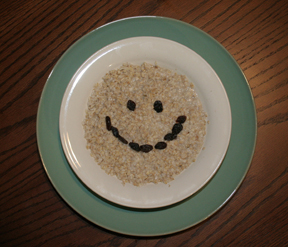
Home, Sweet Home
By Dan Mackie
We open the paper every Saturday morning to see how rich we are.
There they are, page after page of homes for sale, lined up like cars on a car lot, average homes going for mansion prices. We have watched prices balloon month by month; we shook our heads because we couldn’t quite take it in.
Is our $40,000 house really worth five times that much, and more, after two decades? Our modest bungalow needed work when we bought it, and needs care still. We’ve lived here so long that some of the needs-work projects need work again. Paint peels, shingles crack, things fall apart.
If they needed more than a nail or duct tape, most repairs were beyond me. I put on my denial cap (It’s just a small hole in the roof, honey), but my wife resides more in the real world. “We better call someone,’’ she’d say. “I’ll get around to it,’’ I’d answer. “Here’s the phone number,’’ she’d say. “Do you want to call, or should I?”
We did make some improvements. We added a bedroom, a bath and family room, and nicks and dents from robust family living with children. We planted a maple tree, Japanese tree lilacs, a lovely Katsura that a gang of volunteers helped me plant. Some bushes thrived, others died. This year a Lebanon Library book, Bungalow Colors, sent us back to our bungalow roots for the trim; before suburbia turned everything white and off-white, bungalows were pretty snazzy in an earth-tone sort of way. Some were almost a little bawdy.
All that said, the Mackie compound remains modest, a workingperson’s home in a workingperson’s neighborhood. Trust-funders are rare in this section of West Lebanon. When we climb the ladder, it’s to fix something on the roof.
We bought the house from Dorothea Downing, “Mrs. Downing” to us, a retired schoolteacher who moved into senior housing. “You got a good deal,’’ she said later, and I suppose we did, although prices seemed high at the time. We bought our first (pre-Upper Valley) house for $21,000, and traded up to $33,000.
“Prices are crazy,’’ we declared several times through the years, repeatedly predicted a decline, and were proved wrong. When houses went for $100,000, $150,000 was just around the corner. Sometimes Massachusetts money pushed things to a new level: People who moved here from hot markets thought our prices were low, even charming. We grew nervous as first-time homebuyers got squeezed out; how would the next generation get into the market? How could our own kids buy a home? Still prices shot up like a run-away auction. “Do I have $200,000? $250,000? $300,000”? It went higher and higher … then silence.
Last year it seemed like nobody was bidding. The buyers were gone, like dodo birds. Had they been stolen away by Arizona Realtors, or Florida land speculators?
And was I still rich? The city assessor said so. But at night after we turned the lights out I thought I could hear the faint hissing of air leaking from the real estate bubble. Or was that one of the radiators?
I don’t know that my house has ever been a gold mine. Mortgage interest eats the profits like squirrels at the bird feeders. City taxes take a slice, and contractors and repairmen have had their share. We installed one furnace, then another. Replacement windows. Rugs. Flooring. More rugs. More flooring.
I never really minded the capital drain. It’s my house, not my wallet. The room with the dented wall is my son’s old bedroom where his friend heaved a big painted rock during some flareup. You’d see a flaw; I see a story. I waited a long time to repaint the door in my daughter’s old room. She and her friends wrote about boys they liked in an elaborate code. It always made me smile.
We live in an old-fashioned neighborhood of small lots and sidewalks. Some people and families trade houses like cars, but many have stayed. We’ve seen children grow up and move away, and bring grandchildren back for visits. If we aren’t all friends, we at least wish each other well, and if there is nothing more that we can do for each other we smile and wave. When people need to go, people will feed their cats. We regret the loss of good neighbors, those who’ve moved, and those who’ve died.
Mrs. Downing showed me where she buried a beloved little dog, Cinders, in the backyard. I buried my own dog nearby. No one else would care about such a trifle, but she did, and I do.
To be perfectly honest, this wasn’t my dream home. My dream was a country hillside, with a pretty view and not many neighbors. My wife, thinking of our small children, feared isolation. She was right. Here, our kids had friends nearby, and yards to play in: every day was a play date. They could walk to a school playground, or the small local woods at Smith Field. Because all of us parents looked after them, no one had to watch over them like bodyguards. Their old-fashioned childhood was passing away even as they lived it, and minivans and anxiety were taking over the culture. Our neighborhood always felt safe. It was safe, as safe as life ever is.
Week after week, year after year, we looked in the paper and thought about cashing in, getting a bigger, better place. Was it laziness, or history, holding me back? Or clutter in the basement growing exponentially like zucchini?
In recent months, home prices have dropped a little in my neighborhood and the buyers are back, as welcomed by some as the monarch butterflies. We remain bystanders in this commerce. We continue to plant perennials. We buy new cans of paint.
Our house has made us both poorer and richer, and most days we are satisfied with the balance sheet. On Saturday mornings I look at the real estate ads in the paper; I dream a little, and I turn the page.


